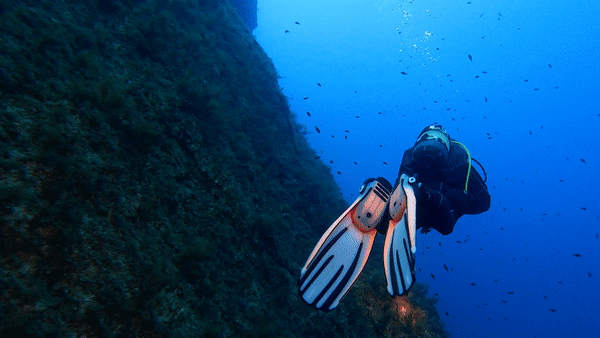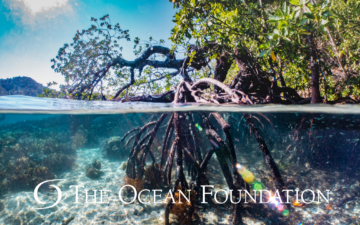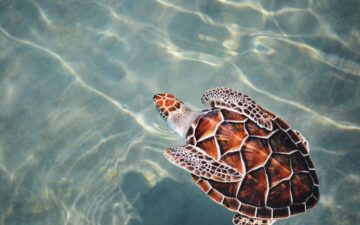WASHINGTON, D.C., January 8th, 2022 – The Ocean Foundation (TOF) and its partners celebrated its fourth annual International Ocean Acidification Day of Action on 8 January, 2022, to acknowledge the dedicated actions taken so far to address the effects of ocean acidification (OA). This annual event is a global day of recognition to congratulate countries and communities that have made substantial commitments to address the global challenge of OA.
The inaugural OA Day of Action was held in 2019 at the House of Sweden in partnership and with support from the Governments of Sweden and Fiji, whose joint leadership on ocean conservation included co-hosting the Sustainable Development Goal (SDG) 14 Ocean Conference at the United Nations in 2017. This year’s OA Day of Action with the Government of Sweden also recognizes their support to TOF’s International Ocean Acidification Initiative, which focuses on global monitoring and scientific capacity building. To date, TOF has trained more than two-hundred and fifty scientists and policymakers on OA monitoring and mitigation techniques by convening a host of regional workshops and funding on-the-ground trainings around the world, in places like Mauritius, Mozambique, Fiji, Hawaii, Colombia, Panama and Mexico. In addition, TOF has supplied seventeen institutions and organizations with ocean acidification monitoring equipment and expert guidance in its use worldwide. You can read more about TOF’s International Ocean Acidification Initiative here.
In 2020, at the Embassy of New Zealand, TOF released the Ocean Acidification Guidebook For Policymakers, a comprehensive report on drafting ocean acidification legislation at the international, regional, national and sub-national levels. According to TOF’s Program Officer, Alexis Valauri-Orton, “the goal is to provide policy templates and examples that will enable policymakers to transform ideas into action.”
OA poses a current threat to the commercial viability of global mariculture (the cultivation of fish, shellfish, and other marine life for food), and, in the longer-term, entire marine ecosystems through its devastating effects on a multitude of marine organisms. There is an acute need to provide the tools necessary to identify the species, communities, industries, and regions that are most vulnerable to this invisible threat while supporting collaborative planning measures that integrate this science with policy development to address this global challenge. In addition, building institutional and scientific capacity within communities, with a focus on risk reduction, is a critical element and key component of a community’s climate resilience strategy. Though there is still much to be done to meet our global needs, this annual event is a reminder of what has already been achieved to address this threat and a celebration of those who helped make it happen.
Mark J. Spalding, President of The Ocean Foundation, emphasized that the “OA Day of Action reminds us that our one global ocean is shared, and that by also sharing knowledge and resources around science, we can establish trust and maintain critical cooperative efforts which include measuring the threat of acidification, and its effect on marine life. We are thankful that Sweden, and our other funding partners, allow us to pursue international science collaboration, increase global awareness, and to translate science into social-policy change that will protect peoples who are dependent on the ocean.”
OA Day of Action reminds us that our one global ocean is shared, and that by also sharing knowledge and resources around science, we can establish trust and maintain critical cooperative efforts which include measuring the threat of acidification, and its effect on marine life.
Mark J. Spalding | PResident, The OCean Foundation
TOF’s Ocean Acidification Monitoring Partners:
University of Mauritius
University of Ghana
University of the South Pacific
The Pacific Community
Mauritius Oceanographic Institute
South African Institute for Aquatic Biodiversity
Universidade Eduardo Mondlane (Mozambique)
Palau International Coral Reef Center
National University of Samoa
National Fisheries Authority, Papua New Guinea
Tuvalu Ministry of Environment
Tokelau Ministry of Environment
CONICET CENPAT (Argentina)
Universidad del Mar (Mexico)
Pontifica Universidad Javeriana (Colombia)
INVEMAR (Colombia)
University of the West Indies
ESPOL (Ecuador)
Smithsonian Tropical Research Institute
About The Ocean Foundation:
The mission of The Ocean Foundation is to support, strengthen, and promote those organizations dedicated to reversing the trend of destruction of ocean environments around the world. The Ocean Foundation (TOF) focuses on three main objectives: to serve donors, generate new ideas, and nurture on-the-ground implementers through facilitation of programs, fiscal sponsorship, grantmaking, research, advised funds, and capacity building for marine conservation.
For media inquiries:
Jason Donofrio
External Relations Officer, The Ocean Foundation
(202) 318-3178
[email protected]






